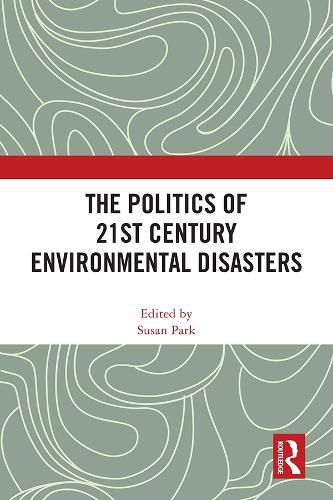Readings Newsletter
Become a Readings Member to make your shopping experience even easier.
Sign in or sign up for free!
You’re not far away from qualifying for FREE standard shipping within Australia
You’ve qualified for FREE standard shipping within Australia
The cart is loading…






This book explores the main concerns for grappling with increasing environmental disasters and examines how environmental disasters are understood by states, corporations, and non-government organizations nationally and internationally.
The focus of this book is threefold: first, to investigate what constitutes an environmental disaster and to identify the parameters for political responses nationally and internationally. Second, the chapters analyse contemporary state practices that exacerbate the impact of, and responses to, environmental disasters. They show how states promote extractivism based on limited understandings of nature drawn from Western philosophy. Finally, the book highlights the strengths and weaknesses in political and institutional responses at the local level to such disasters by state and non-state actors. This shows how both slow and fast violence of environmental disasters affects communities, but also how vulnerable subjects are based on people's capabilities.
The Politics of 21st Century Environmental Disasters is an indispensable resource for students and scholars in political science and environmental studies. The chapters in this book were originally published as a special issue of Environmental Politics.
$9.00 standard shipping within Australia
FREE standard shipping within Australia for orders over $100.00
Express & International shipping calculated at checkout
This book explores the main concerns for grappling with increasing environmental disasters and examines how environmental disasters are understood by states, corporations, and non-government organizations nationally and internationally.
The focus of this book is threefold: first, to investigate what constitutes an environmental disaster and to identify the parameters for political responses nationally and internationally. Second, the chapters analyse contemporary state practices that exacerbate the impact of, and responses to, environmental disasters. They show how states promote extractivism based on limited understandings of nature drawn from Western philosophy. Finally, the book highlights the strengths and weaknesses in political and institutional responses at the local level to such disasters by state and non-state actors. This shows how both slow and fast violence of environmental disasters affects communities, but also how vulnerable subjects are based on people's capabilities.
The Politics of 21st Century Environmental Disasters is an indispensable resource for students and scholars in political science and environmental studies. The chapters in this book were originally published as a special issue of Environmental Politics.